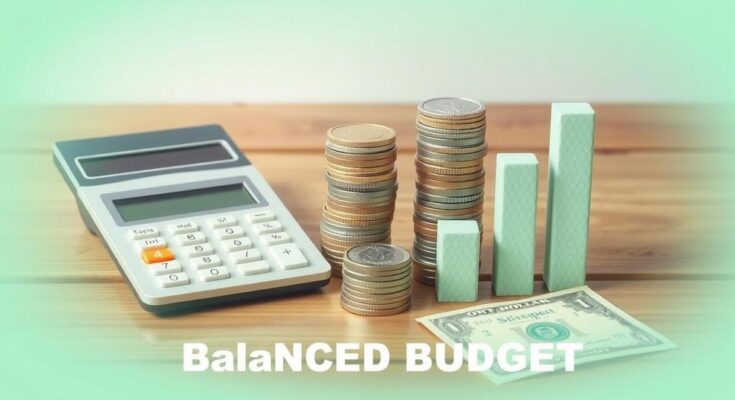The 2025 South African Budget, presented by Finance Minister Enoch Godongwana, seeks to stabilize government finances while imposing tax changes that will raise the cost of living for many citizens. Key changes include an increase in VAT, a freeze on income tax brackets, and higher sin taxes on alcohol and tobacco, resulting in a greater financial burden for consumers, particularly low- and middle-income earners. Strategic adjustments are necessary for consumers to manage their financial wellness amidst these changes.
South Africa’s 2025 Budget Speech, delivered by Finance Minister Enoch Godongwana, has sparked mixed reactions among citizens. While the government aims to stabilize its finances, several tax changes will result in increased costs of living for many South Africans, raising concerns about how these alterations could impact the average consumer.
A significant change is the increase in Value-Added Tax (VAT), which will rise from 15% to 15.5% starting May 1, 2025, with an additional 0.5% increase anticipated in 2026. This adjustment means that prices for essential goods and services, such as electricity, clothing, and transportation, will rise. Although basic food items remain VAT-exempt, many essentials will experience price hikes, disproportionately affecting low- and middle-income earners due to VAT’s regressive nature.
Although there is no direct increase in personal income tax rates, the absence of adjustments to tax brackets for inflation will push many individuals into higher tax brackets. Consequently, as salaries are increase, workers will effectively pay more taxes without seeing an increase in their real take-home pay. This situation is especially problematic for middle-class and working professionals, who may find their purchasing power diminished.
In a positive note for motorists, the government has decided to maintain the current general fuel levy and the Road Accident Fund levy unchanged for another year. This continued freeze is projected to provide approximately R4 billion in tax relief, preventing a more considerable hike in fuel prices.
In terms of excise duties, the budget introduces annual increases that will make alcohol and tobacco more expensive. Alcohol duties are set to rise by 6.75%, with a 340ml beer costing approximately 15 cents more. In addition, tobacco duties will increase by 4.75%, further impacting the budgets of consumers who engage in these activities.
Beneficiaries of social grants will see modest increases in their payments; however, these adjustments may not adequately address the realities of rising food inflation, adding stress to millions dependent on such assistance. Conversely, the government has allocated R19.2 billion to the Passenger Rail Agency of South Africa for improved train services alongside R11.8 billion for infrastructure enhancements. Efficient management of these funds could result in better, and potentially more affordable, public transport for South Africans.
In light of these changes, consumers are encouraged to adapt their financial strategies. Suggestions include adjusting household budgets to accommodate rising prices, maximizing tax savings through tax-free accounts and medical deductions, monitoring the costs of fuel and transport, and considering lifestyle modifications to curtail spending on alcohol and cigarettes.
In summary, the 2025 Budget illustrates a challenging year ahead for South African consumers. Although the government has made strategic investments, increased VAT, unchanged tax brackets, and heightened sin taxes compound the financial burdens faced by citizens. For the economy to grow sustainably, it is crucial for South Africa to prioritize job creation and efficient public spending to mitigate the pressures on consumers moving forward.
In conclusion, the 2025 South African budget presents a series of challenges for consumers, primarily through increased VAT, unchanged income tax brackets, and higher sin taxes. Middle- and low-income earners are likely to feel the most significant impacts, as prices for essential goods rise. It is imperative that the government ensures proper allocation and management of resources for infrastructure and public services while promoting economic growth and job creation. By doing so, South Africa can alleviate some financial pressures faced by its citizens in the coming years.
Original Source: www.zawya.com




